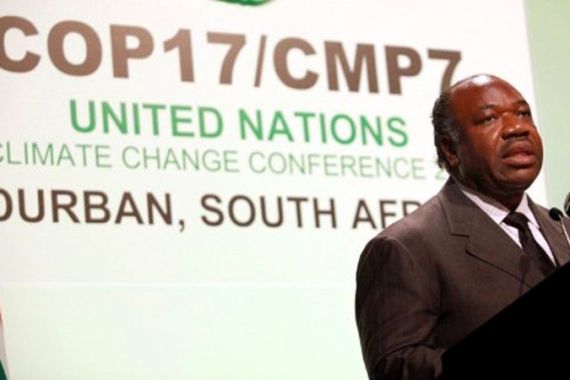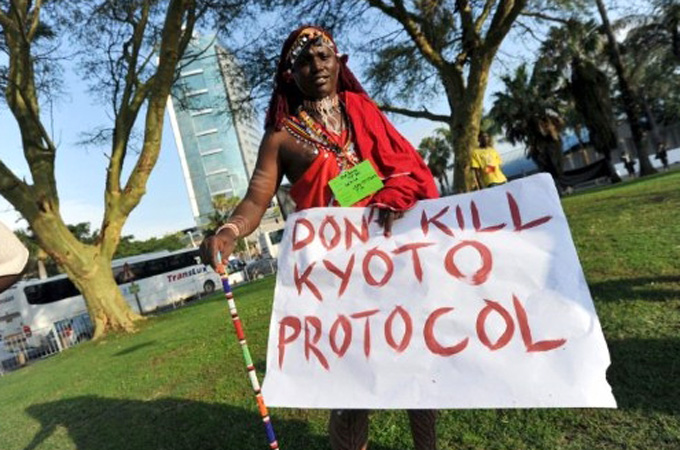UN edges towards global climate fund
States represented at climate conference in South Africa are close to establishing a fund to tackle global warming.

 |
| Representatives from 194 nations attended the UN climate conference aimed at combating climate change [EPA] |
Representatives at a UN climate conference are edging towards an agreement to create a Green Climate Fund (GCF), which will help poor nations tackle global warming and allow them to effectively contribute to a new global effort to fight climate change.
“I have a fair amount of confidence this is going to get done in a positive way,” Todd Stern, the US climate envoy, told reporters on Wednesday at the 194-nation conference in Durban, South Africa.
Keep reading
list of 4 itemsTurtles swimming to extinction in Malaysia as male hatchlings feel heat
Could shipping containers be the answer to Ghana’s housing crisis?
Thousands protest against over-tourism in Spain’s Canary Islands
Only a few technical operational details remained to be finalised, he said.
Rich countries have pledged up to $100bn a year by 2020 to aid poor states most directly affected by rising global temperatures to adapt their economies and protect themselves from adverse weather.
But critics said it could remain a hollow shell unless there was also agreement on where the actual funds came from – and how the money was spent.
The US, in particular, was haggling over the source of long-term financing and how to measure the needs of poorer countries.
When asked how much money could be available, US envoy Stern said most donor countries were waiting for the fund to get up and running before making contributions.
China, for instance, said that it wants the fund set up before it would make its domestic climate efforts binding under an international agreement from 2020.
Other important developing countries also wanted the fund’s design agreed to in Durban.
Delayed impact
Those who have worked on the fund for years said that agreeing to the concept of the fund was already a major achievement and that it would be easier to find cash once the institution was created.
“Since the US was the last major hold-out on the GCF, it looks like we’re in good shape to celebrate,” said Andrew Light, a technical expert who has worked on the fund for three years.
“In the last five weeks I’ve been shuttling around between parties trying to create space to resolve the differences between the US and other countries. There are still just a few issues to resolve but I’m confident they’ll get there,” he said.
Still, if the fund is agreed to in Durban, its impact may not be felt for many years.
“Even if the fund is established this week, then practical realities will likely limit its impact for a number of years,” Nick Robins, climate change analyst at HSBC, explained.
“It will take at least 12 months to set up and the appraisal process means it will probably not be spending until 2015.”
Kyoto questioned
Broader talks are deadlocked on how to move forward after a vital clause of the Kyoto Protocol mandating carbon cuts expires at the end of next year.
The European Union said that it was open to signing an updated Kyoto Protocol, but wanted assurances the world’s biggest emitters – including China, the United States and India, which account for nearly 50 per cent of the world’s carbon emissions – would sign too.
Al Jazeera’s Jonah Hull, reporting from Durban, said countries are “stuck” in their discussions on whether or not to hold future talks on an updated Kyoto Protocol.
“At this point there are two groups very split. On the one side an unlikely alliance between the United States, Brazil, India and China – for different reasons resisting the idea of those talks and a future deal,” he said.
“On the other side the European Union and just about everyone else wants to get them off the ground as soon as possible.”